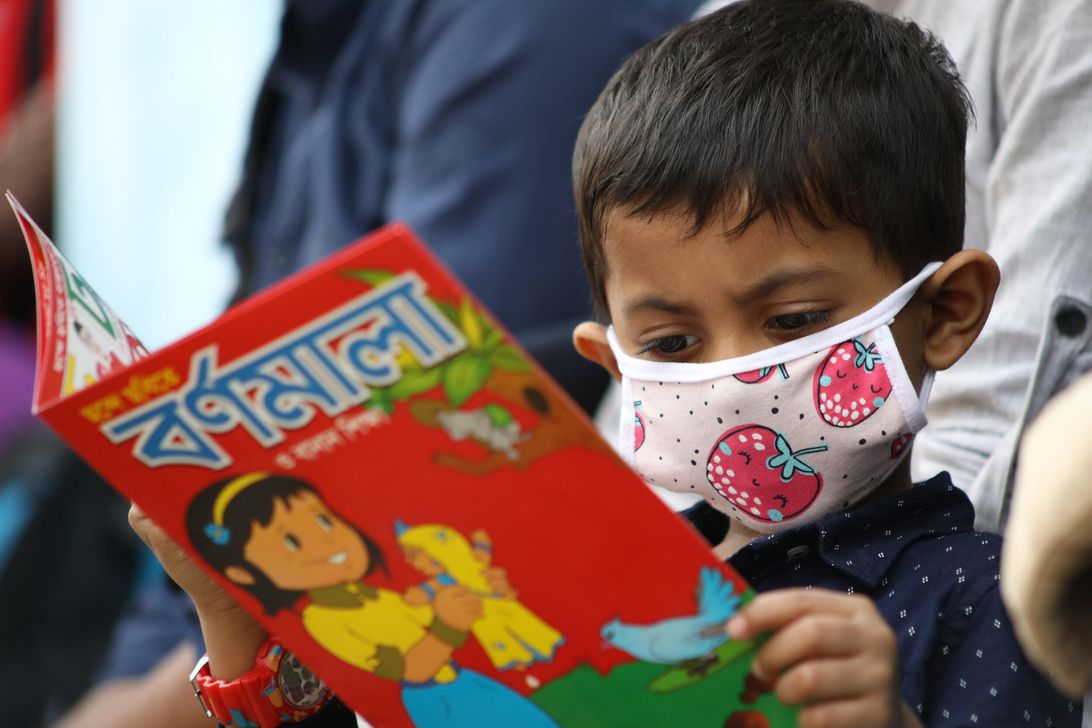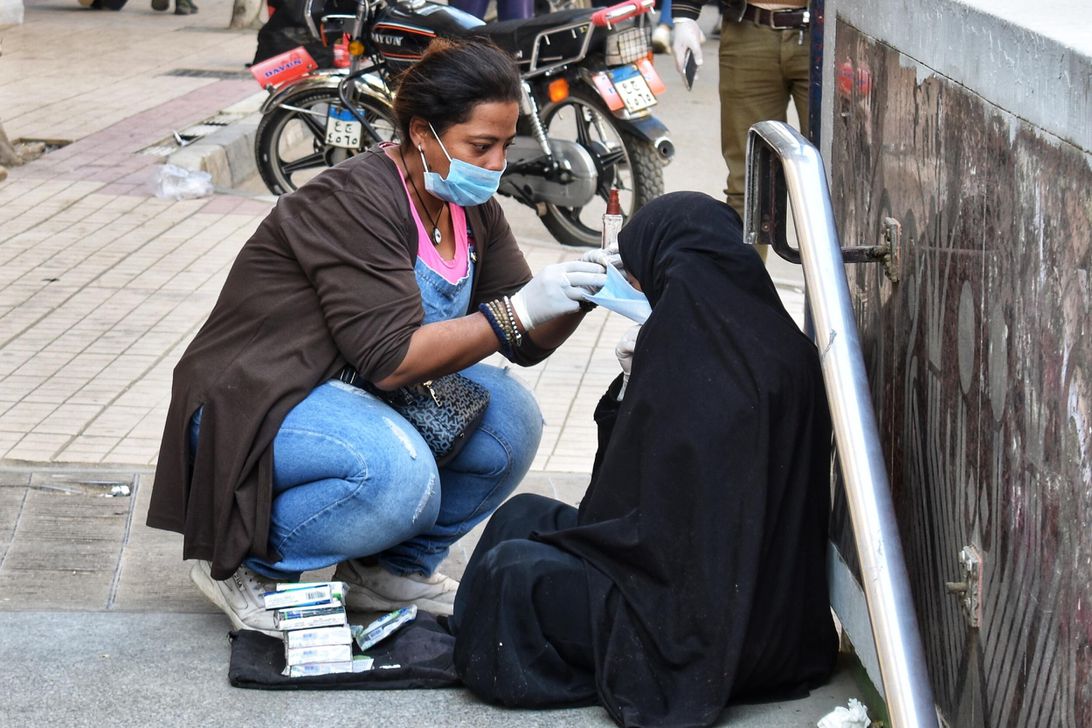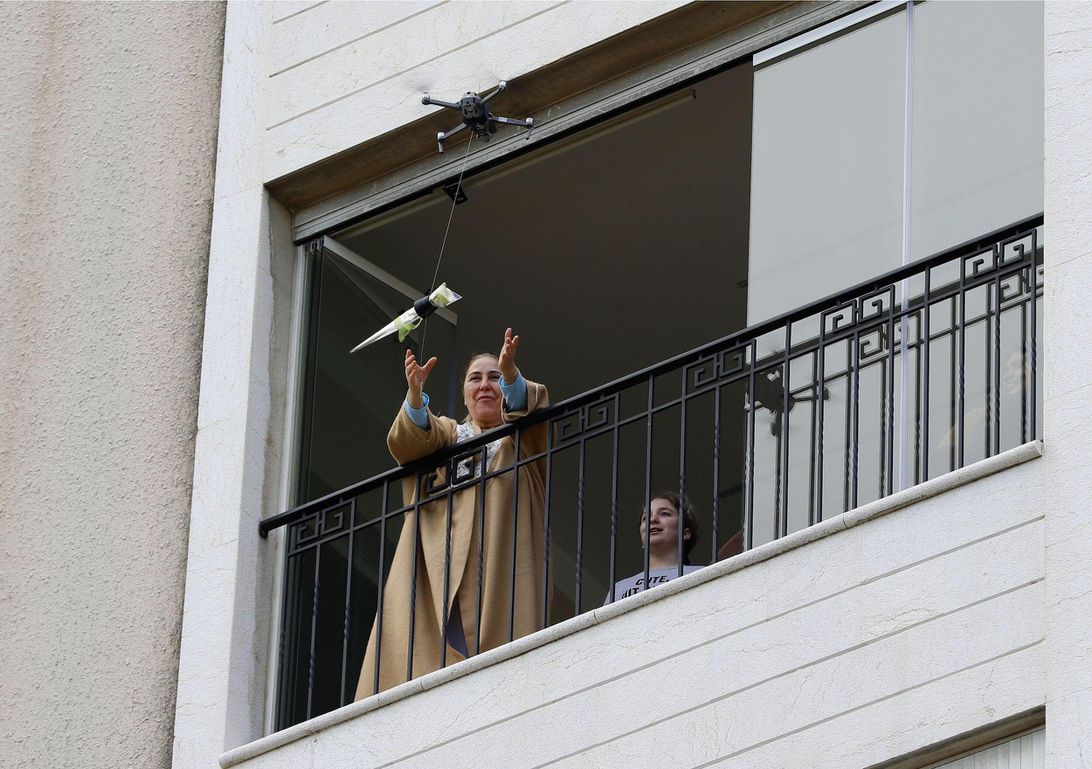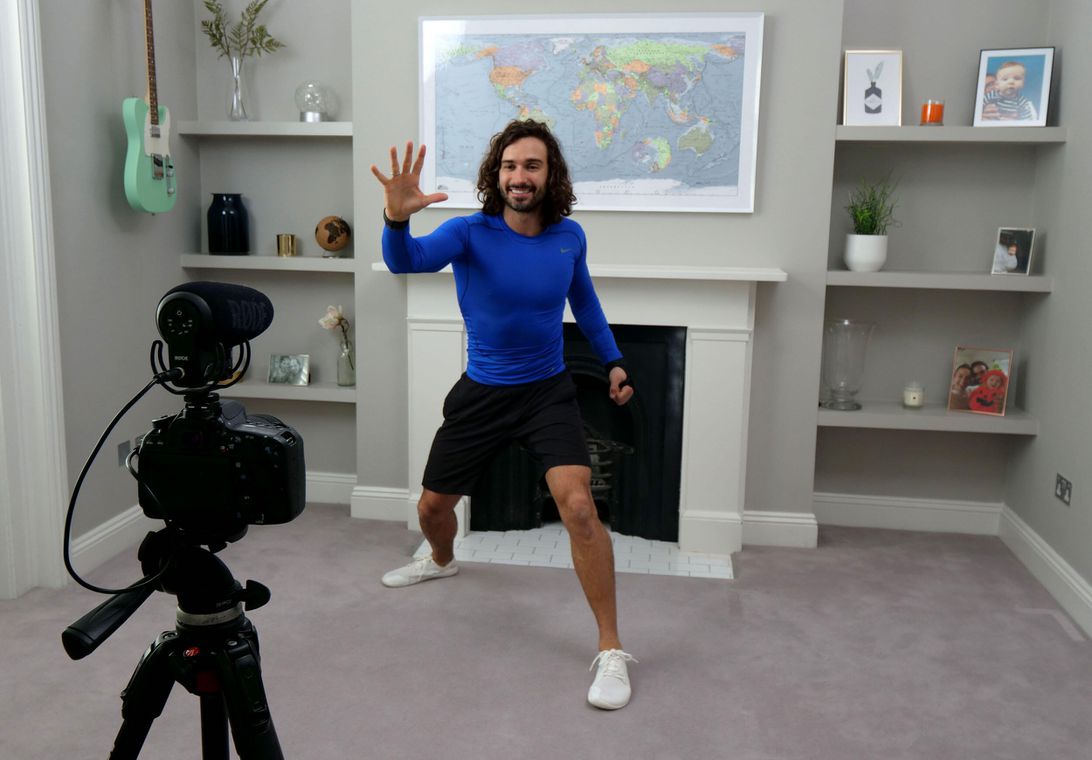Coronavirus chronicles: Here's some good news amid the dire reports
Right now the coronavirus pandemic and COVID-19 are all anyone can talk about, and you're not alone if you feel overwhelmed or find yourself focusing on worst-case scenarios. So let's take a second, breathe deep and look at some of the positive things going on in these strange times.

Keep in mind that the coronavirus pandemic -- which has killed thousands, amid hundreds of thousands of cases worldwide -- is far from over and you should continue to play your part to look after yourself and others. Here's how to protect yourself from coronavirus, how to prepare for quarantine and how to keep your spirits up. Remember, there are many reasons not to sink into worry or fear. We'll keep updating this page with encouraging, reassuring and uplifting news about medical progress, government support and people uniting to help each other.
We know how to slow the spread
Follow the advice of your local authority to minimize your chances of getting or spreading the virus, in particular by washing your hands regularly, not touching your face and avoiding non-essential trips out of your home.
- In China, Singapore and other affected countries, social distancing played a big part in turning the tide. Acting early and following the advice is crucial, and we all have a part to play.
More and more countries are containing the spread
Many countries around the world are in the midst of coronavirus outbreaks, and if you live in any of these places you should continue to follow the guidelines. The results are reassuring: In countries that have acted fast and taken social distancing seriously, the spread of the virus has been dramatically slowed or even contained.
- China is reporting a drastic reduction in new cases, although this was achieved using extensive lockdown measures.
- Singapore managed to contain the spread of the virus by acting fast, without imposing the draconian measures seen in China.
- Hong Kong and Taiwan were able to tackle the virus thanks to their experience with SARS in 2002, teaching the world valuable lessons about investing time and resources into dealing with an outbreak.

We're working on a cure
Scientists around the world are looking for a coronavirus vaccine. It's essential not to rush this process, and it will take months or even years to develop the vaccine and make sure it's safe. But the work has begun and some promising avenues have already been identified.
- Researchers have a head start as the SARS-CoV-2 pathogen is similar to coronaviruses we've encountered before, including the SARS virus that struck in 2002.
- Clinical trials of potential vaccines are underway in China, testing methods of stimulating our immune system to fight the virus.
- The first US clinical trials for a potential vaccine have begun in Seattle. Biotech company Moderna has taken a piece of the genetic code for the pathogen's S protein -- the part that's present in other coronaviruses, like SARS -- and fused it with fatty nanoparticles which can be injected into the body.
- Imperial College London is designing a similar vaccine using coronavirus RNA, its genetic code.
- Pennsylvania biotech company Inovio is generating strands of DNA it hopes will stimulate an immune response.
- Johnson & Johnson and French pharmaceutical giant Sanofi are both working with the US Biomedical Advanced Research and Development Authority to develop vaccines. Sanofi's plan is to mix coronavirus DNA with genetic material from a harmless virus, while Johnson & Johnson will attempt to deactivate SARS-CoV-2 and switch off its ability to cause illness.
- In the meantime, existing antiviral drugs may have an effect on the new coronavirus, such as remdesivir or the anti-flu drug favipiravir.
People do recover
Around the world, many are recovering from the infection. Often this is thanks to the hard work of medical staff and the people who support them.
- Doctors in India have reported success in treating infected patients with a mixture of drugs usually used to tackle HIV, swine flu and malaria.
- In China and Japan, doctors have had promising results using blood plasma from people who have recovered from COVID-19 to treat newly infected patients. This well-established medical technique could even be used to boost the immunity of people who are at risk of catching the disease.
- A 103-year-old Chinese woman is reported to have recovered, due to the fact she had no other major underlying health conditions.
Testing is improving
Newer, faster tests are also being developed around the world. With all this medical research, we're understanding the virus better and learning how to deal with it.
- Researchers at Johns Hopkins are working on a coronavirus screening test that checks nasal swabs and could analyze hundreds of people in a day. The test results come back in 24 hours, which they're hoping to shorten to a few hours.
- In South Korea, the spread appears to have slowed thanks to widespread testing, including drive-thru tests and phone box-style testing booths.
The environment is getting a break
The slowdown in production, transportation and sales is having a huge impact on the economy and on the finances of workers. But one side effect of the reduction in manufacturing and vehicle traffic is a reduction in pollution.
- China's lockdown led to a 25 percent decrease in CO2 emissions when compared with the same period in 2019.
- Satellite imagery shows startling reductions in air pollution over countries where traffic has been limited.
- Researcher Marshall Burke from Stanford University calculated that the reduction in emissions in China in January and February could save as many as 77,000 lives. To put that number into context, that's more than 20 times the number of people who died from coronavirus in that time.

Support is available
As people stay away from work and many businesses close their doors temporarily, we all face uncertainty and stress. Governments have pledged to support citizens and businesses with subsidies, loans, suspensions of tax and rent, and other measures. These are some of the initial measures being taken around the world that may ease your mind, or inspire you to contact your representative to press for more help.
- Australia is paying AU$750 (around $445 or £380) to all citizens on a lower income, and offering loans to small and medium-sized businesses.
- Denmark is subsidizing 75% of workers' salaries.
- France has promised no company will be allowed to fail as a result of the pandemic, freezing tax and rent payments for small businesses and expanding the welfare system for workers.
- Germany has pledged at least 500 billion euros ($550 billion) in loan guarantees.
- Italy has promised help for families and one-off 500 euro payments to self-employed people.
- Spain has announced a 200 billion euro rescue package in loans for small businesses, and is freezing mortgages and utility bills for individuals.
- Sweden is subsidizing 90% of workers' salaries if they're affected by coronavirus.
- The UK is guaranteeing 80% of workers' salaries and providing limited sick pay to those who are self-employed.
- The US is close to passing legislation to give $1,200 to most American adults and $500 to most children, as part of a stimulus package that also includes loans to business and local and state governments, funds for hospitals and more unemployment insurance. Also, you also have extra time to file your tax return because Tax Day has been moved to July 15.

Self-isolation doesn't have to be isolating
If you're stuck at home, there are plenty of ways to keep yourself entertained, informed and connected.
- Lots of content is free, whether you want to zone out for a bit or get active. Check out our roundup of video games, movies, audiobooks, virtual museums, coloring pages, home workouts and more -- all totally free.
- Friends and family are staying in touch using video chat and other online tools, such as Skype, Zoom and Houseparty.
- Stay fit with a workout at home, enjoy a movie night with Netflix Party or grow an herb garden.
- Even if you're sheltering at home, you can still help by volunteering, donating and supporting the people around you.

People are coming together
If we're going to get through this, it'll be because we all came together and helped each other. Many of us are finding ways to bring out the best in ourselves and our communities, resisting misinformation and divisiveness.
- Many have joined volunteer mutual aid groups to support the vulnerable in their own community. When the UK government called for volunteers, over a quarter of a million people signed up in a single day.
- People and businesses are creating online resources to help ease the tension and inconvenience of quarantine, many of them free or discounted.
- Apple, Facebook and other companies are donating millions of face masks held in case of wildfires or other needs.
- Cuban doctors traveled to Italy to help deal with the spread of the disease.